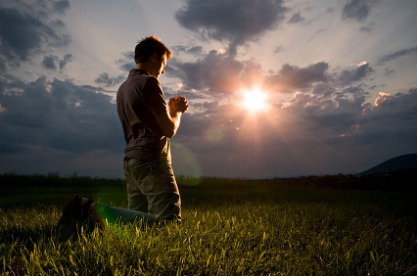In Nature
Ever notice how all the plants turn brown in the fall and disappear during winter? How the annual plants disappear completely; while the perennials only die back to their root-stocks? I’ve come to realize that Nature/God is “cleaning house” or de-cluttering the natural habitats of old, worn out growth to make room for the new. At the same time, the old plants are recycled as they decompose, becoming nutrients for the new growth of spring.
Other de-cluttering examples in our natural world are:
- Leaves which fall off the trees each fall season (how that season got its name!). As the tree rids itself of the old and worn out to make room for the new, the old leaves are recycled into organic matter/soil that will feed the same tree later.
- Overwintering mammals and social insects often do “spring cleaning” of their dens, nests, and hives to get rid of the clutter that built up during winter and make room for fresh nesting material, food, or family. Seldom does an animal or insect build up more than it needed to survive.
- Natural events (ie. fire, spring ice-out, flood, storm, etc.) which occur to restore the natural productivity to a habitat where extensive dead mats of vegetation didn’t readily decompose, or there are many fallen/dead trees and jammed logs or debris in a river. The clutter is usually reduced or eliminated and “that house is cleaned.” Clutter doesn’t seem to exist in Nature for long.
In Us
I’ve learned much over the years by observing how the natural world operates. Many Asian, Greek, and Roman philosophers did similarly and took the time to apply those observations to the lives of their people. I think in these modern times we should take the time to do the same. Why is it that humans seem to be one of the few organisms on earth that accumulate much more than is needed for comfort and survival?
I. Physical Clutter
During my brief lifetime, I’ve noticed that many people “burden themselves” with countless electronic gadgets, clothes, furniture, and other possessions for a host of different reasons. That creates the problem of what to do with the prior items that these replace. Before long, we’ve run out of storage space in our homes and garages and are forced to pay for storage units to save these rejects instead of sorting and recycling them. I suspect that most of us don’t realize what a burden these things gradually become. They monopolize our space and time; particularly if we are consumed by these gadgets and possessions.
II. Spiritual Clutter
I’ve also found that the things that clutter our physical surroundings also clutter our hearts and souls. They often prevent us from developing spiritually and getting closer to our God. This subtle selfishness focuses our efforts on providing things for ourselves while ignoring the less fortunate in our society and world.
As Christians, we understand the Two Great Commandments that summarize The Ten: “Love God with your whole heart, soul and mind” and “Love your neighbor as yourself”. However, with our attention on ourselves and our possessions, there’s not much room or time within our cluttered selves to invite the love that is God, inside us.
 De-Cluttering Ourselves
De-Cluttering Ourselves
Humans are supposed to be the most intelligent beings on the face of Earth. So, why do we let this happen? Usually, it’s because we are physically incapable of de-cluttering and/or we have failed to practice the spiritual gifts of faith (in God’s messages), hope (for a better way/time) and charity/care (to those around us). Putting those three spiritual gifts into action develops us into more mature Christians and the many possessions cluttering up our spiritual and physical environments become less important. The need to recycle them for others to use becomes more important as we see the need around us.
Our responsibilities and burdens are lessened as we are freed from what deprives us of the time and space to invite God into our lives in a fuller and more meaningful sense. Suddenly, we have the time, space, and freedom necessary to do more meaningful things.
So, to get started on “de-cluttering” our physical surroundings, we first need to start work on “de-cluttering” ourselves. As in the natural world, the physical de-cluttering will usually follow.



